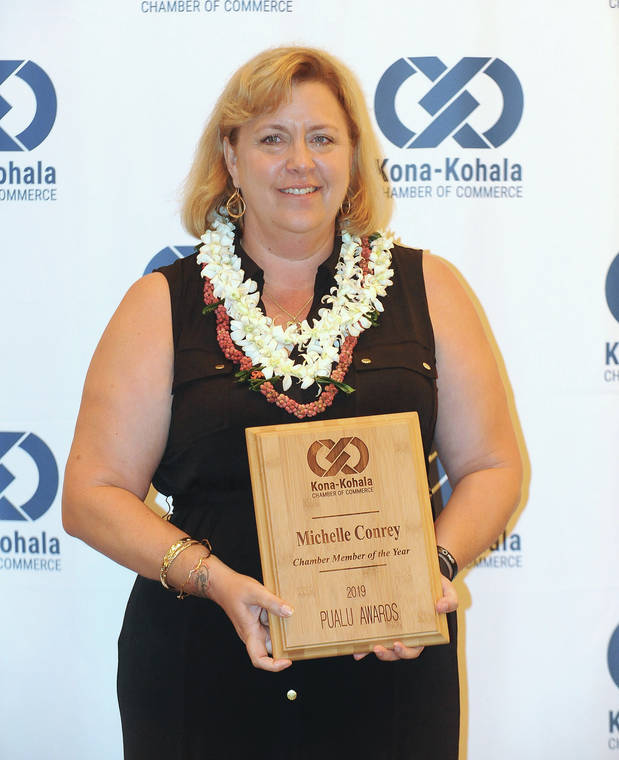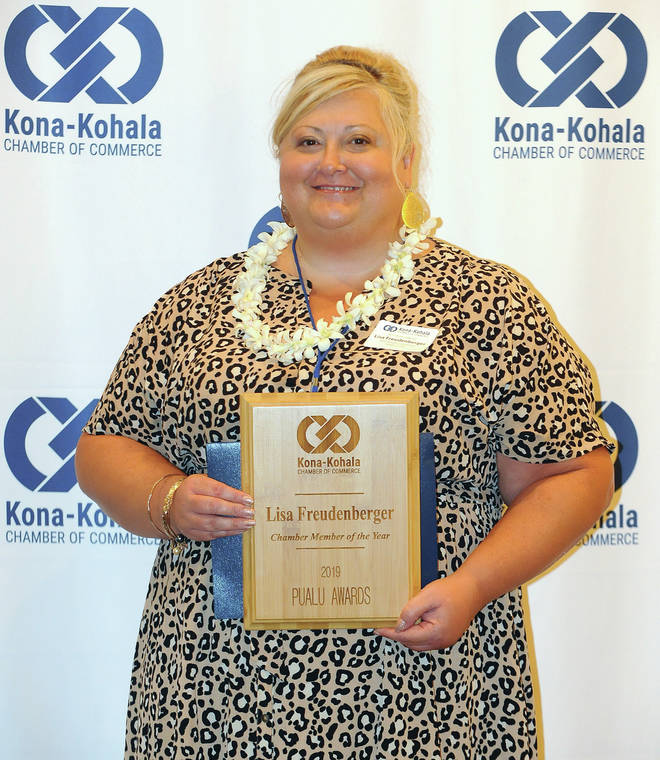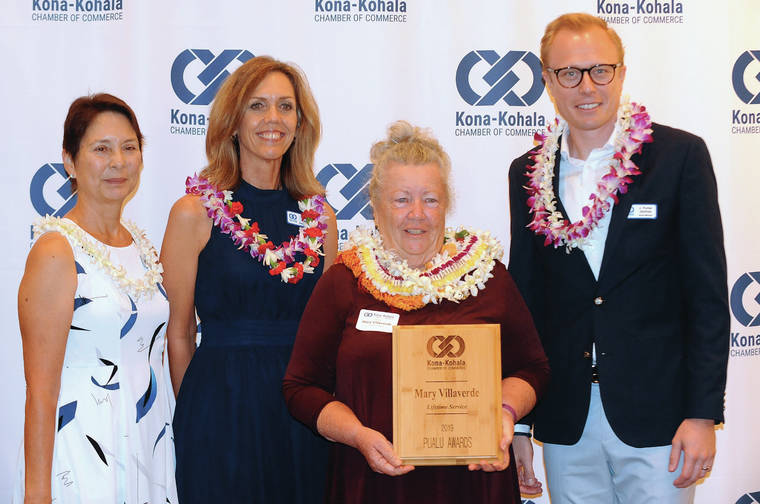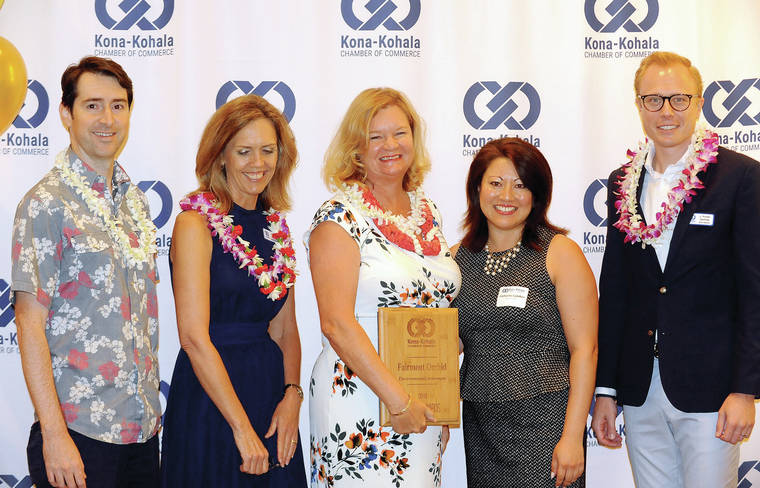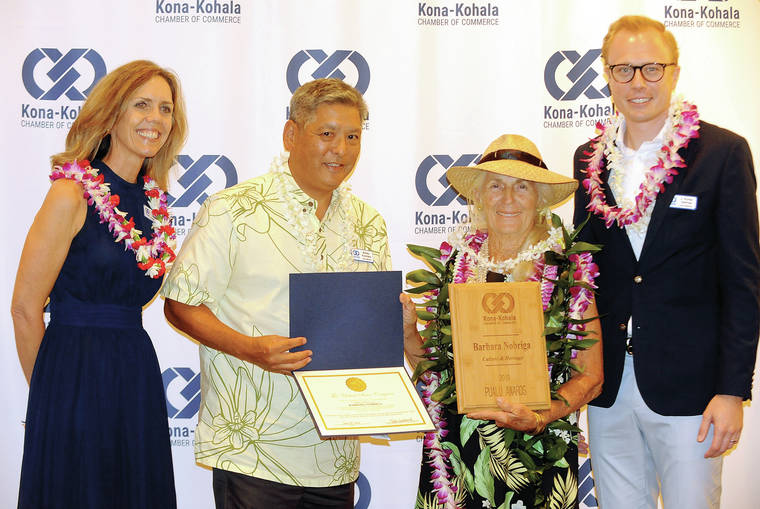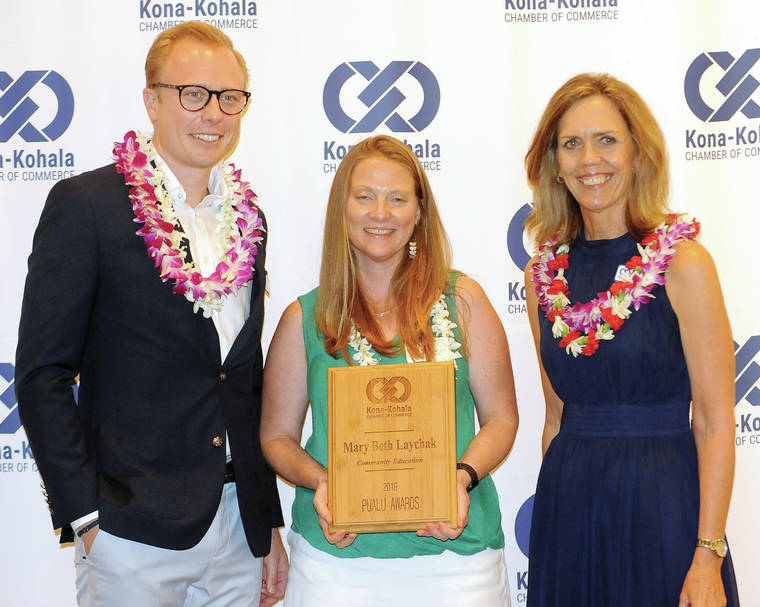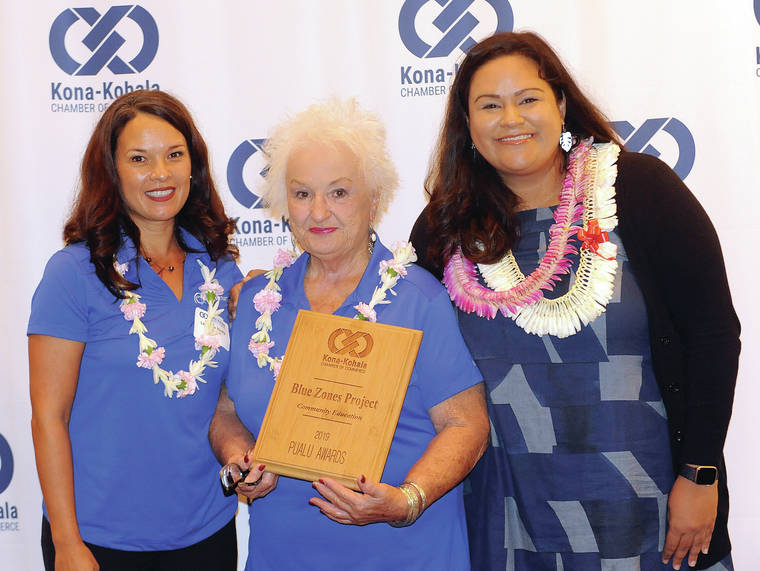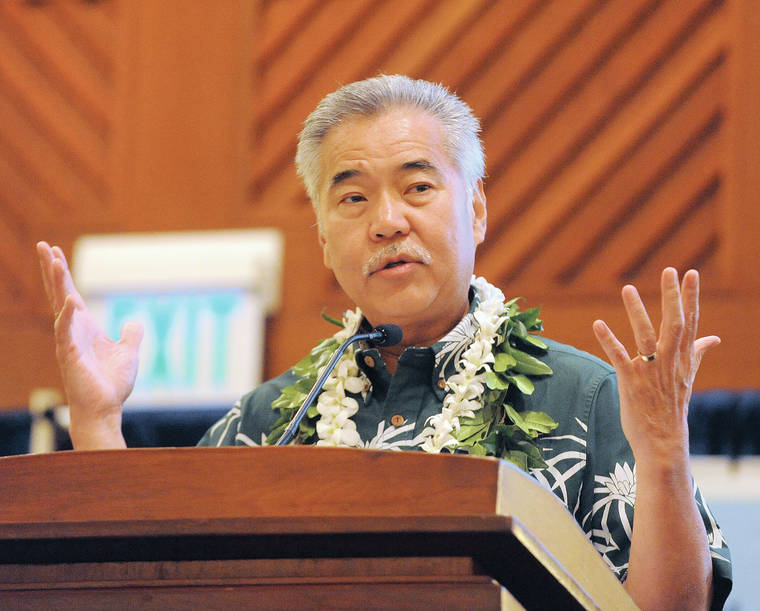Governor talks education, workforce development at Chamber luncheon








KAUPULEHU — Gov. David Ige on Friday spoke of efforts to improve educational opportunities and workforce development throughout the state with increased access to pre-K and early college programs for Hawaii’s youth.
The governor, who gave the keynote address at the Kona-Kohala Chamber of Commerce’s annual membership and installation luncheon, also emphasized the value of programs that equip students with valuable skills in fields facing critical shortages.
Prior to Friday’s luncheon, Ige spoke about a recent meeting held earlier this month with President Donald Trump, U.S. Labor Secretary Alex Acosta and seven other governors for a conversation on workforce development.
“We’ve all seen the projections about the jobs of the future requiring different skills and more education,” Ige told West Hawaii Today. “And, really, he’s committed to closing the gap about making sure that our educational institutions are teaching the knowledge and skills that the students have.”
Ige said one of the programs Hawaii is embracing is the adoption of apprenticeship models popularly found in construction trades and then applying those to industries experiencing workforce shortages.
That includes looking at employers with chronic openings, working with them to identify the skill sets their employees need and then working with high schools and community colleges to develop programs that prepare students with the skills employers are looking for.
Employers then have the opportunity to take apprentices on and pay them as they learn, and through these apprenticeships, workers have guaranteed employment once they complete the program.
Already, Ige said, apprenticeship programs have already been designed in fields like information technology and cybersecurity.
“And hopefully then we can get residents to fill these vacancies,” he said, “rather than have to promote and import from out of state.”
The governor also pointed to increasing access to early college programs, which Ige said he believes is a “transformation for our high school students,” saying it’s critical that students have the opportunity to pursue college courses.
“And then we do know that there’s a skills gap,” he added. “The jobs that are being created require higher levels of skills than they have in the past. So we want to challenge our students and get them to be and embrace everything that they want.”
In his remarks at the luncheon, Ige called early college a “game changer,” and said he wants every public school to be able to give every high school student the option of pursuing college courses while in high school.
And local campuses like Hawaii Community College — Palamanui, he added, go a long way in allowing students in the region here access to higher education programs.
Ige also made reference to Act 61, signed into law earlier this month, which appropriates up to $700,000 this year and next in support of the Hawaii Promise Program, which covers unmet financial needs for qualified University of Hawaii community college students.
In 2017-18, roughly 1,500 students received an average $1,200 each in Hawaii Promise scholarships to support their community college education, according to the University of Hawaii.
“We want to make sure there are no barriers to higher education in our community,” the governor said at Friday’s luncheon, prompting applause from the audience.
Ige also spoke about the importance of educational opportunities for the state’s youngest learners.
Hawaii’s lawmakers last session also passed Senate Bill 78, which includes funding to expand public pre-kindergarten in the state by 10 additional classrooms.
Ige told West Hawaii Today on Friday that was about half the money he had wanted for public pre-k, saying he wanted to expand to 22 additional public pre-k classes.
“I do think that we have to have a commitment to public pre-k,” he said, “because we know that the earlier we invest in our students, the more successful they are.”
Furthermore, he said, communities struggling the most on student achievement are also those areas that don’t have access to pre-k programs to prepare students for school.
“So I think that we need to focus on those areas and make public pre-k part of the public education system, so that we can be certain that everyone has access to pre-k and early education as early as possible,” he said.

